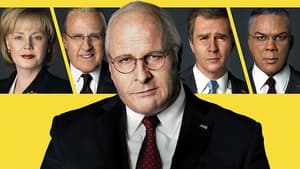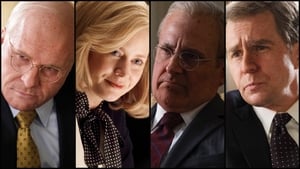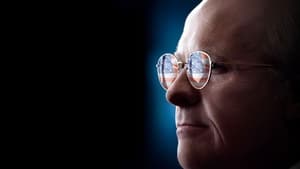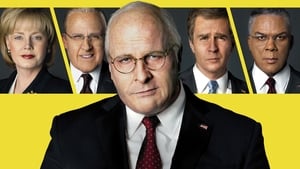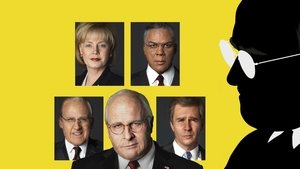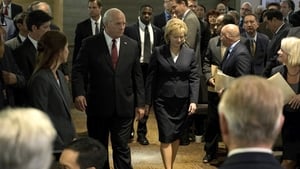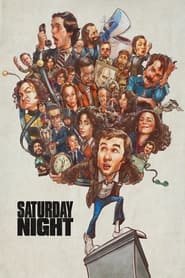Adam McKay may be one of the funniest people alive and I’m not convinced you even recognize his name. McKay’s big breakthrough came in 2004 when he wrote and directed the instant comedy classic Anchorman, only to follow it up with other hilarious efforts such as Step Brothers, Talladega Nights, The Other Guys and Anchorman 2. That’s the type of filmography that gets someone a star on Hollywood Boulevard’s prestigious Walk of Fame. But McKay’s story doesn’t end there, the filmmaker then used his gifted comedic voice as a means to bring 2008’s housing collapse to light with The Big Short and he even earned an Adapted Screenplay Oscar in the process. So if you weren’t familiar with McKay before, now you are. Fast forward a few years and Adam McKay returns to deliver another awards season contender with the hyper-sensationalized political satire, Vice.
Dick Cheyney (Christian Bale) grew up as a quiet country boy in Wyoming and married his childhood sweetheart Lynne (Amy Adams). Yet, their young marriage hits a boiling point as Dick gets booted from Yale and finds himself in trouble with the law after multiple bar fights and DUIs. Lynne presents him with a clear ultimatum; either make something of himself or they're finished. Dick vows to never let her down again and, shortly after, begins an internship in Washington D.C. which introduces him to a dastardly Congressman named Donald Rumsfeld (Steve Carell). He forges connections within the Republican Party that eventually propel him to the Vice Presidency underneath George W. Bush (Sam Rockwell) where Cheyney wields immense power that will change the rule of law in America forever.
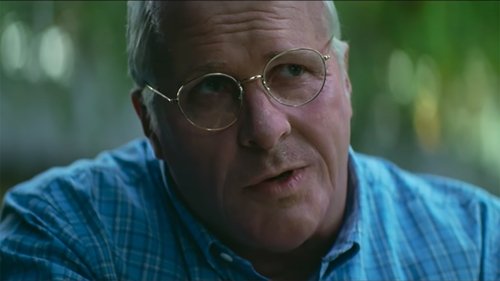
In a volatile political climate such as the one we find ourselves currently immersed in, Vice is destined to be as polarizing as the politicians we elect. That’s mainly due to McKay’s desire to spitball “what ifs” that connect the dots of Bush’s presidency and Cheyney’s climb to power with no regard for hard evidence whatsoever. The result is a satirical bombshell that’s as entertaining as anything you’ll watch all year, but also grossly over-the-top and blatantly biased to reflect the director’s own political agenda (it’s something McKay even addresses in the film’s mid-credits scene). And to the film’s detriment, Vice is a tonal mess that weaves through elements of tongue-in-cheek humor and subdued drama with an alarming imbalance. There’s an exhausting amount of metaphors, some that work and many that flop, but through it all McKay’s passionate vitriol for this moment in recent history and its contemporary wake of modern conservatism becomes blindingly apparent. And for these reasons alone, Vice can’t be taken too seriously. However, if you allow yourself to suspend disbelief and accept the film solely as a source of entertainment, Vice has plenty to offer. Amy Adams provides another fabulous turn as she channels aspects of her strong-willed and controlling Oscar-Nominated character from The Master to bring Lynne Cheyney to life. Likewise, Christian Bale’s onscreen work speaks for itself. The role is another landmark effort from the Oscar-winning actor whose physical transformation is as impressive as his detailed performance. All in all, Vice is destined to become a hot-button topic upon its Christmas Day release and its journey to the Oscars. And while the film is riddled with inaccuracy and artistic license, which will inevitably enrage certain viewers, Vice also stands as one of the most compelling and well-acted films of the year.
-
 NameChristian BaleCharacterDick Cheney
NameChristian BaleCharacterDick Cheney -
 NameAmy AdamsCharacterLynne Cheney
NameAmy AdamsCharacterLynne Cheney -
 NameSteve CarellCharacterDonald Rumsfeld
NameSteve CarellCharacterDonald Rumsfeld -
 NameSam RockwellCharacterGeorge W. Bush
NameSam RockwellCharacterGeorge W. Bush -
 NameAlison PillCharacterMary Cheney
NameAlison PillCharacterMary Cheney -
 NameEddie MarsanCharacterPaul Wolfowitz
NameEddie MarsanCharacterPaul Wolfowitz -
 NameJustin KirkCharacterScooter Libby
NameJustin KirkCharacterScooter Libby -
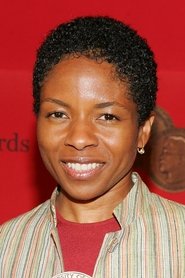 NameLisaGay HamiltonCharacterCondoleezza Rice
NameLisaGay HamiltonCharacterCondoleezza Rice -
 NameJesse PlemonsCharacterKurt
NameJesse PlemonsCharacterKurt -
 NameBill CampCharacterGerald Ford
NameBill CampCharacterGerald Ford -
 NameDon McManusCharacterDavid Addington
NameDon McManusCharacterDavid Addington -
 NameLily RabeCharacterLiz Cheney
NameLily RabeCharacterLiz Cheney -
 NameShea WhighamCharacterWayne Vincent
NameShea WhighamCharacterWayne Vincent -
 NameStephen Adly GuirgisCharacterGeorge Tenet
NameStephen Adly GuirgisCharacterGeorge Tenet -
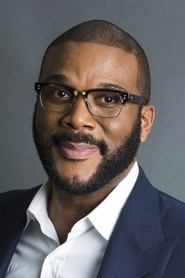 NameTyler PerryCharacterColin Powell
NameTyler PerryCharacterColin Powell -
 NameJosh LatzerCharacterSecret Service Agent
NameJosh LatzerCharacterSecret Service Agent -
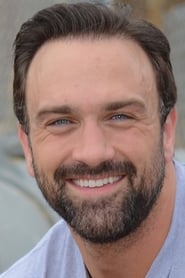 NameJeff BosleyCharacterSecret Service Agent
NameJeff BosleyCharacterSecret Service Agent -
 NameCamille James HarmanCharacterMary Matalin
NameCamille James HarmanCharacterMary Matalin -
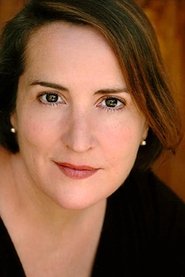 NameJillian ArmenanteCharacterKaren Hughes
NameJillian ArmenanteCharacterKaren Hughes -
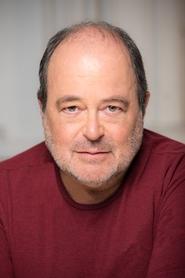 NameMatthew JacobsCharacterAntonin Scalia
NameMatthew JacobsCharacterAntonin Scalia -
 NameRobert L. HughesCharacterJustice Warren E. Burger
NameRobert L. HughesCharacterJustice Warren E. Burger -
 NameScott ChristopherCharacterMarshal
NameScott ChristopherCharacterMarshal -
 NameAmir MalaklouCharacterPrisoner
NameAmir MalaklouCharacterPrisoner -
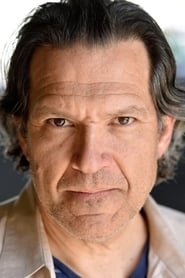 NamePaul PerriCharacterTrent Lott
NamePaul PerriCharacterTrent Lott -
 NameEdward FletcherCharacterDemocratic Senator
NameEdward FletcherCharacterDemocratic Senator -
 NameBrian Woo Young ChungCharacterSoldier by Tank
NameBrian Woo Young ChungCharacterSoldier by Tank -
 NameKawa MawlayeeCharacterSoldier by Tank
NameKawa MawlayeeCharacterSoldier by Tank -
 NameAlex MacNicollCharacter17 Year Old Dick Cheney
NameAlex MacNicollCharacter17 Year Old Dick Cheney -
 NameCailee SpaenyCharacter17 Year Old Lynne Vincent
NameCailee SpaenyCharacter17 Year Old Lynne Vincent -
 NameBrandon SklenarCharacterBobby Prentace
NameBrandon SklenarCharacterBobby Prentace -
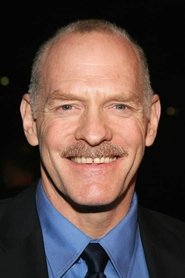 NameCasey SanderCharacterOld Crew Member
NameCasey SanderCharacterOld Crew Member -
 NameJoe SabatinoCharacterLineman Boss
NameJoe SabatinoCharacterLineman Boss -
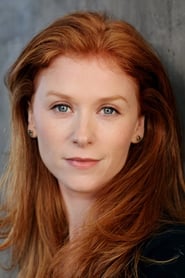 NameFay MastersonCharacterEdna Vincent
NameFay MastersonCharacterEdna Vincent -
 NameDan GilvaryCharacterMonotone Congressman
NameDan GilvaryCharacterMonotone Congressman -
 NameStephen FriedrichCharacterAlan
NameStephen FriedrichCharacterAlan -
 NameKyle S. MoreCharacterRoger Ailes
NameKyle S. MoreCharacterRoger Ailes -
 NameRobyn WholeyCharacterWhite House Tour Guide
NameRobyn WholeyCharacterWhite House Tour Guide -
 NameBetsy KochCharacterKurt's Wife
NameBetsy KochCharacterKurt's Wife -
 NameElliot ZetumerCharacterKurt's Son
NameElliot ZetumerCharacterKurt's Son -
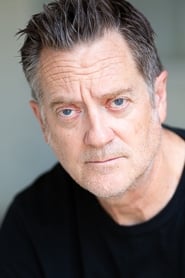 NameKirk BovillCharacterHenry Kissinger
NameKirk BovillCharacterHenry Kissinger -
 NameViolet HicksCharacter8 Year Old Liz Cheney
NameViolet HicksCharacter8 Year Old Liz Cheney -
 NameColyse HargerCharacter5 Year Old Mary Cheney
NameColyse HargerCharacter5 Year Old Mary Cheney -
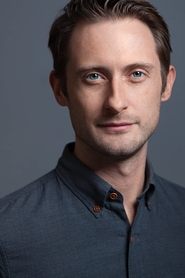 NameBrandon BalesCharacterCIA Agent
NameBrandon BalesCharacterCIA Agent -
 NameBrian PothCharacterSecret Service Agent
NameBrian PothCharacterSecret Service Agent -
 NameSam MassaroCharacterYoung Antonin Scalia
NameSam MassaroCharacterYoung Antonin Scalia -
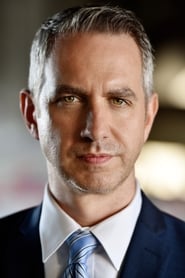 NameDoug SimpsonCharacterCampaign Manager
NameDoug SimpsonCharacterCampaign Manager -
 NameScott SubionoCharacterCheney's Doctor
NameScott SubionoCharacterCheney's Doctor -
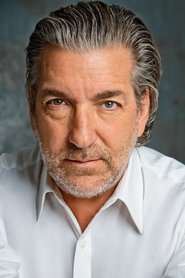 NameDennis LaValleCharacterMayor
NameDennis LaValleCharacterMayor -
 NameAl CarabelloCharacterAide
NameAl CarabelloCharacterAide -
 NameMelissa K. MarksCharacterHeather Poe
NameMelissa K. MarksCharacterHeather Poe -
 NameTreisa GaryCharacterClerk
NameTreisa GaryCharacterClerk -
 NameChris DoughertyCharacterPhilip Perry
NameChris DoughertyCharacterPhilip Perry -
 NameJohn HillnerCharacterGeorge Bush Sr.
NameJohn HillnerCharacterGeorge Bush Sr. -
 NameGrace RoweCharacterTeacher
NameGrace RoweCharacterTeacher -
 NameMichael Reilly BurkeCharacterDavid Gribbin
NameMichael Reilly BurkeCharacterDavid Gribbin -
 NameStaci RobertsCharacterTheresa
NameStaci RobertsCharacterTheresa -
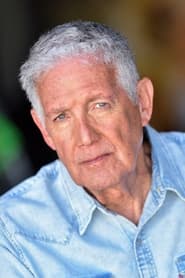 NameWilliam GoldmanCharacterDennis Hastert
NameWilliam GoldmanCharacterDennis Hastert -
 NameTony ForsmarkCharacterGrover Norquist
NameTony ForsmarkCharacterGrover Norquist -
 NameAdam BartleyCharacterFrank Luntz
NameAdam BartleyCharacterFrank Luntz -
 NameDaniel BruingtonCharacterDoug
NameDaniel BruingtonCharacterDoug -
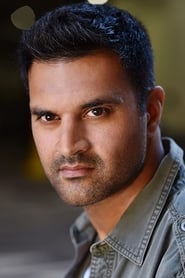 NameVishesh ChachraCharacterSecret Service Agent
NameVishesh ChachraCharacterSecret Service Agent -
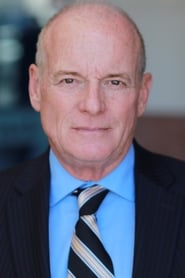 NameKevin FloodCharacterRichard Clarke
NameKevin FloodCharacterRichard Clarke -
 NameMichael A. NaggiCharacterOther Man
NameMichael A. NaggiCharacterOther Man -
 NameMelissa SchumacherCharacterIntelligence Officer
NameMelissa SchumacherCharacterIntelligence Officer -
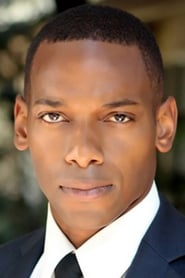 NameDelpaneaux WillsCharacterIntelligence Officer
NameDelpaneaux WillsCharacterIntelligence Officer -
 NameScott Alan SmithCharacterIntelligence Officer
NameScott Alan SmithCharacterIntelligence Officer -
 NamePaul YooCharacterJohn Yoo
NamePaul YooCharacterJohn Yoo -
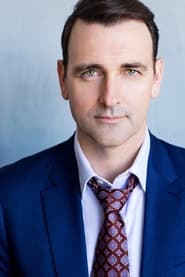 NameBrandon FirlaCharacterJay Bybee
NameBrandon FirlaCharacterJay Bybee -
 NameOmid ZaderCharacterWaterboard Translator
NameOmid ZaderCharacterWaterboard Translator -
 NameDavid YahyaCharacterWaterboard Translator
NameDavid YahyaCharacterWaterboard Translator -
 NameKarim SalehCharacterTranslator
NameKarim SalehCharacterTranslator -
 NameTerri CavanaughCharacterFocus Group Leader
NameTerri CavanaughCharacterFocus Group Leader -
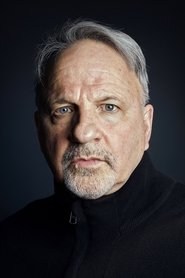 NameStewart J. ZullyCharacterFocus Group Participant
NameStewart J. ZullyCharacterFocus Group Participant -
 NamePtolemy SlocumCharacterFocus Group Participant
NamePtolemy SlocumCharacterFocus Group Participant -
 NameMelody HollisCharacterFocus Group Participant
NameMelody HollisCharacterFocus Group Participant -
 NameMatt ChampagneCharacterDouglas Feith
NameMatt ChampagneCharacterDouglas Feith -
 NameJoseph BeckCharacterKarl Rove
NameJoseph BeckCharacterKarl Rove -
 NameTony GrahamCharacterAbu Musab Al-Zarqawi
NameTony GrahamCharacterAbu Musab Al-Zarqawi -
 NameAlex KingiCharacterOsama Bin Laden
NameAlex KingiCharacterOsama Bin Laden -
 NameVanessa ClokeCharacterCIA Analyst
NameVanessa ClokeCharacterCIA Analyst -
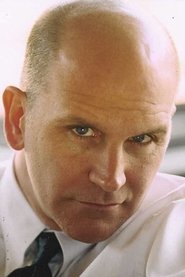 NameDavid FabrizioCharacterLawrence Wilkerson
NameDavid FabrizioCharacterLawrence Wilkerson -
 NameMatt MillerCharacterGeneral
NameMatt MillerCharacterGeneral -
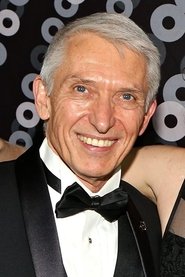 NameMark BramhallCharacterHarry Whittington
NameMark BramhallCharacterHarry Whittington -
 NameHolly HawkinsCharacterKatherine Armstrong
NameHolly HawkinsCharacterKatherine Armstrong -
 NameJohn KellarCharacterSoldier
NameJohn KellarCharacterSoldier -
 NameDustin GreenCharacterSoldier
NameDustin GreenCharacterSoldier -
 NameJames HornbeckCharacterPatrick Leahy
NameJames HornbeckCharacterPatrick Leahy -
 NameRobert LoftinCharacterGW Doctor / Surgeon
NameRobert LoftinCharacterGW Doctor / Surgeon -
 NameKevin SymonsCharacterMale News Anchor
NameKevin SymonsCharacterMale News Anchor -
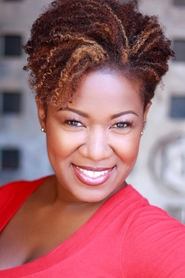 NameStacie GreenwellCharacterNurse
NameStacie GreenwellCharacterNurse -
 NameAmy MoormanCharacterMartha Raddatz
NameAmy MoormanCharacterMartha Raddatz -
 NameNaomi WattsCharacterNews Anchor (uncredited)
NameNaomi WattsCharacterNews Anchor (uncredited) -
 NameAidan GailCharacter12 Year Old Dick Cheney (uncredited)
NameAidan GailCharacter12 Year Old Dick Cheney (uncredited) -
 NameAlfred MolinaCharacterWaiter (uncredited)
NameAlfred MolinaCharacterWaiter (uncredited)
-
 NameAdam McKayJobWriter
NameAdam McKayJobWriter -
 NameAdam McKayJobDirector
NameAdam McKayJobDirector -
 NameNicholas BritellJobOriginal Music Composer
NameNicholas BritellJobOriginal Music Composer -
 NameChris TcholakianJobProduction Assistant
NameChris TcholakianJobProduction Assistant -
 NameClay CullenJobStunt Driver
NameClay CullenJobStunt Driver -
 NameCyril BalavoineJobVFX Artist
NameCyril BalavoineJobVFX Artist -
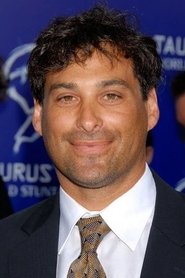 NamePeter EpsteinJobStunts
NamePeter EpsteinJobStunts -
 NameAmanda MorganJobSecond Assistant "B" Camera
NameAmanda MorganJobSecond Assistant "B" Camera -
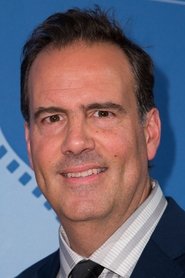 NameChris ScarabosioJobSound Designer
NameChris ScarabosioJobSound Designer -
 NameCate HardmanJobScript Supervisor
NameCate HardmanJobScript Supervisor -
 NameJulie HartleyJobUnit Production Manager
NameJulie HartleyJobUnit Production Manager -
 NameJoann ConnollyJobSecond Assistant Director
NameJoann ConnollyJobSecond Assistant Director -
 NameJennifer MadeloffJobProduction Supervisor
NameJennifer MadeloffJobProduction Supervisor -
 NameBill CoeJobFirst Assistant "A" Camera
NameBill CoeJobFirst Assistant "A" Camera -
 NameEd NovickJobProduction Sound Mixer
NameEd NovickJobProduction Sound Mixer -
 NameMatt RebenkoffJobFirst Assistant Director
NameMatt RebenkoffJobFirst Assistant Director -
 NamePaul BelenardoJobProduction Accountant
NamePaul BelenardoJobProduction Accountant -
 NameChris ScarabosioJobSupervising Sound Editor
NameChris ScarabosioJobSupervising Sound Editor -
 NameRyan CreasyJobSecond Assistant "A" Camera
NameRyan CreasyJobSecond Assistant "A" Camera -
 NameRay GarciaJobKey Grip
NameRay GarciaJobKey Grip -
 NameJeff G. WaxmanJobUnit Production Manager
NameJeff G. WaxmanJobUnit Production Manager -
 NamePaul MetcalfJobFirst Assistant "B" Camera
NamePaul MetcalfJobFirst Assistant "B" Camera -
 NameLisa RodgersJobPost Production Supervisor
NameLisa RodgersJobPost Production Supervisor -
 NameMike BonnaudJobRigging Gaffer
NameMike BonnaudJobRigging Gaffer -
 NameGary McMonniesJobAssistant Art Director
NameGary McMonniesJobAssistant Art Director -
 NameFante ZamoraJobSet Dresser
NameFante ZamoraJobSet Dresser -
 NameChristian KesslerJobSecond Assistant "B" Camera
NameChristian KesslerJobSecond Assistant "B" Camera -
 NameEddie A. Reid IVJobElectrician
NameEddie A. Reid IVJobElectrician -
 NameJosh LusbyJobSet Designer
NameJosh LusbyJobSet Designer -
 NameJamie KelmanJobKey Makeup Artist
NameJamie KelmanJobKey Makeup Artist -
 NameAmber WakefieldJobAdditional Casting
NameAmber WakefieldJobAdditional Casting -
 NameKey KolbJobRigging Grip
NameKey KolbJobRigging Grip -
 NameMinh BahnsenJobRigging Grip
NameMinh BahnsenJobRigging Grip -
 NameMichael BaumanJobGaffer
NameMichael BaumanJobGaffer -
 NameWesley WoffordJobMakeup Artist
NameWesley WoffordJobMakeup Artist -
 NameDonis RhodenJobBest Boy Grip
NameDonis RhodenJobBest Boy Grip -
 NameJohn YoungbloodJobAssistant Property Master
NameJohn YoungbloodJobAssistant Property Master -
 NameMartin CharlesJobGraphic Designer
NameMartin CharlesJobGraphic Designer -
 NameAnn PalaJobKey Makeup Artist
NameAnn PalaJobKey Makeup Artist -
 NameMelissa OliveiraJobAssistant Hairstylist
NameMelissa OliveiraJobAssistant Hairstylist -
 NameJohn PanzarellaJobLocation Manager
NameJohn PanzarellaJobLocation Manager -
 NameDrew GrantJobAssistant Production Coordinator
NameDrew GrantJobAssistant Production Coordinator -
 NameSara WalbridgeJobKey Costumer
NameSara WalbridgeJobKey Costumer -
 NameCharles EhrlingerJobDolly Grip
NameCharles EhrlingerJobDolly Grip -
 NameMatthew CavalieroJobProperty Master
NameMatthew CavalieroJobProperty Master -
 NameJohn MangJobDolly Grip
NameJohn MangJobDolly Grip -
 NameJames GreenJobElectrician
NameJames GreenJobElectrician -
 NameLaurel KellyJobHairstylist
NameLaurel KellyJobHairstylist -
 NameKaren Asano-MyersJobKey Hair Stylist
NameKaren Asano-MyersJobKey Hair Stylist -
 NameDawn Marie DeibertJobExtras Casting Assistant
NameDawn Marie DeibertJobExtras Casting Assistant -
 NameThomas T. TaylorJobSet Designer
NameThomas T. TaylorJobSet Designer -
 NameAaron MorrisonJobGraphic Designer
NameAaron MorrisonJobGraphic Designer -
 NameAlejandro J. CastilloJobElectrician
NameAlejandro J. CastilloJobElectrician -
 NameAlanna LevyJobArt Department Coordinator
NameAlanna LevyJobArt Department Coordinator -
 NameAngel DeSantiJobTransportation Captain
NameAngel DeSantiJobTransportation Captain -
 NameThomas McCartyJobElectrician
NameThomas McCartyJobElectrician -
 NameBrent RiceJobLeadman
NameBrent RiceJobLeadman -
 NameDeborah HarmanJobSet Dresser
NameDeborah HarmanJobSet Dresser -
 NameVanessa PortilloJobExtras Casting
NameVanessa PortilloJobExtras Casting -
 NameLuis MorenoJobBest Boy Electric
NameLuis MorenoJobBest Boy Electric -
 NameElaine PerlmannJobAssistant Costume Designer
NameElaine PerlmannJobAssistant Costume Designer -
 NameCheryl DanielsJobKey Hair Stylist
NameCheryl DanielsJobKey Hair Stylist -
 NameTaylor BlackJobProduction Coordinator
NameTaylor BlackJobProduction Coordinator -
 NameLauren RicherJobCasting Assistant
NameLauren RicherJobCasting Assistant -
 NameErce Deli CantuJobAssistant Location Manager
NameErce Deli CantuJobAssistant Location Manager -
 NameElizabeth HimelsteinJobDialect Coach
NameElizabeth HimelsteinJobDialect Coach -
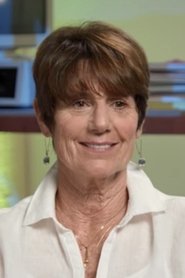 NameMichele Panelli-VenetisJobSecond Unit First Assistant Director
NameMichele Panelli-VenetisJobSecond Unit First Assistant Director -
 NameDavid C. HughesJobSound Designer
NameDavid C. HughesJobSound Designer -
 NameSpooky StevensJobUnit Publicist
NameSpooky StevensJobUnit Publicist -
 NameJ.R. GrubbsJobSound Effects Editor
NameJ.R. GrubbsJobSound Effects Editor -
 NameJeremy TorgersonJobAssistant Location Manager
NameJeremy TorgersonJobAssistant Location Manager -
 NameFrank McEldowneyJobGreensman
NameFrank McEldowneyJobGreensman -
 NameAndrew LipschultzJobUnit Publicist
NameAndrew LipschultzJobUnit Publicist -
 NameAndrea GardJobFoley Artist
NameAndrea GardJobFoley Artist -
 NameCharles Gregory RossJobHairstylist
NameCharles Gregory RossJobHairstylist -
 NameMichael ConnorJobTransportation Captain
NameMichael ConnorJobTransportation Captain -
 NameDaniel LaurieJobSupervising Dialogue Editor
NameDaniel LaurieJobSupervising Dialogue Editor -
 NameAaron HassonJobADR Recordist
NameAaron HassonJobADR Recordist -
 NameMatt DunkleyJobOrchestrator
NameMatt DunkleyJobOrchestrator -
 NameE.J. FoersterJobSecond Unit Director
NameE.J. FoersterJobSecond Unit Director -
 NameGeno HartJobTransportation Coordinator
NameGeno HartJobTransportation Coordinator -
 NameJustin DoyleJobSound Effects Editor
NameJustin DoyleJobSound Effects Editor -
 NameRonni BrownJobFoley Artist
NameRonni BrownJobFoley Artist -
 NameCassie LlanasJobProduction Secretary
NameCassie LlanasJobProduction Secretary -
 NameMolly RoseJobCasting Assistant
NameMolly RoseJobCasting Assistant -
 NameMichael DiersingJobConstruction Coordinator
NameMichael DiersingJobConstruction Coordinator -
 NameChris ScarabosioJobSound Re-Recording Mixer
NameChris ScarabosioJobSound Re-Recording Mixer -
 NameAlex OlivaresJobFirst Assistant Editor
NameAlex OlivaresJobFirst Assistant Editor -
 NameDaniel McEldowneyJobGreensman
NameDaniel McEldowneyJobGreensman -
 NameTony VillaflorJobSound Re-Recording Mixer
NameTony VillaflorJobSound Re-Recording Mixer -
 NameRichard QuinnJobDialogue Editor
NameRichard QuinnJobDialogue Editor -
 NameBrad SemenoffJobDialogue Editor
NameBrad SemenoffJobDialogue Editor -
 NameYarden LevoJobSecond Second Assistant Director
NameYarden LevoJobSecond Second Assistant Director -
 NameJessica DrakeJobDialect Coach
NameJessica DrakeJobDialect Coach -
 NameDaniel LaurieJobADR Supervisor
NameDaniel LaurieJobADR Supervisor -
 NameNicholas BritellJobConductor
NameNicholas BritellJobConductor -
 NameAdam PinkstaffJobTransportation Captain
NameAdam PinkstaffJobTransportation Captain -
 NameDevon KelleyJobFoley Editor
NameDevon KelleyJobFoley Editor -
 NameJohn FinkleaJobMusic Editor
NameJohn FinkleaJobMusic Editor -
 NameDoug WinninghamJobAssistant Sound Editor
NameDoug WinninghamJobAssistant Sound Editor -
 NameMatt KennedyJobStill Photographer
NameMatt KennedyJobStill Photographer -
 NameFrank RinellaJobFoley Mixer
NameFrank RinellaJobFoley Mixer -
 NameKimberly PatrickJobFoley Artist
NameKimberly PatrickJobFoley Artist -
 NameEmmeline Luka BaleJobThanks
NameEmmeline Luka BaleJobThanks -
 NameHeather BurtonJobStunts
NameHeather BurtonJobStunts -
 NameBen GreavesJobBoom Operator
NameBen GreavesJobBoom Operator -
 NameFrancine MaislerJobCasting
NameFrancine MaislerJobCasting -
 NameAdam McKayJobProducer
NameAdam McKayJobProducer -
 NameMegan EllisonJobExecutive Producer
NameMegan EllisonJobExecutive Producer -
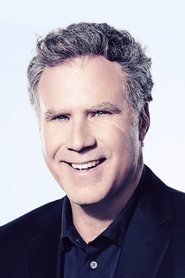 NameWill FerrellJobProducer
NameWill FerrellJobProducer -
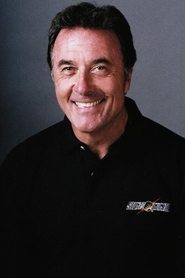 NameGregory J. BarnettJobStunts
NameGregory J. BarnettJobStunts -
 NameRaymond GieringerJobVisual Effects Supervisor
NameRaymond GieringerJobVisual Effects Supervisor -
 NameJeremy KleinerJobProducer
NameJeremy KleinerJobProducer -
 NameBrad PittJobProducer
NameBrad PittJobProducer -
 NameFrancesca BrunoriJobSet Costumer
NameFrancesca BrunoriJobSet Costumer -
 NameRandall L. JohnsonJobBoom Operator
NameRandall L. JohnsonJobBoom Operator -
 NameDede GardnerJobProducer
NameDede GardnerJobProducer -
 NameKate BiscoeJobMakeup Department Head
NameKate BiscoeJobMakeup Department Head -
 NameAlyson Black-BarrieJobHair Designer
NameAlyson Black-BarrieJobHair Designer -
 NameDebra BeebeJobCostume Supervisor
NameDebra BeebeJobCostume Supervisor -
 NameAshlen AquilaJobStunts
NameAshlen AquilaJobStunts -
 NameJeffrey G. BarnettJobStunts
NameJeffrey G. BarnettJobStunts -
 NameSusan MathesonJobCostume Design
NameSusan MathesonJobCostume Design -
 NameJ. Chan ClaggettJobProduction Supervisor
NameJ. Chan ClaggettJobProduction Supervisor -
 NameTsuyoshi AbeJobStunts
NameTsuyoshi AbeJobStunts -
 NameGreig FraserJobDirector of Photography
NameGreig FraserJobDirector of Photography -
 NameHank CorwinJobEditor
NameHank CorwinJobEditor -
 NamePatricia DeHaneyJobHair Department Head
NamePatricia DeHaneyJobHair Department Head -
 NameGreg CannomJobProsthetic Designer
NameGreg CannomJobProsthetic Designer -
 NameGreg CannomJobMakeup Effects Designer
NameGreg CannomJobMakeup Effects Designer -
 NameBrad RickerJobSupervising Art Director
NameBrad RickerJobSupervising Art Director -
 NameChris GallaherJobProsthetic Supervisor
NameChris GallaherJobProsthetic Supervisor -
 NameChelsea BarnardJobExecutive Producer
NameChelsea BarnardJobExecutive Producer -
 NameJillian LongneckerJobExecutive Producer
NameJillian LongneckerJobExecutive Producer -
 NameKevin J. MessickJobProducer
NameKevin J. MessickJobProducer -
 NameJennifer MadeloffJobAssociate Producer
NameJennifer MadeloffJobAssociate Producer -
 NameJan PascaleJobSet Decoration
NameJan PascaleJobSet Decoration -
 NameMaeve CullinaneJobAssociate Producer
NameMaeve CullinaneJobAssociate Producer -
 NameDavid MeyerJobArt Direction
NameDavid MeyerJobArt Direction -
 NameDean WolcottJobArt Direction
NameDean WolcottJobArt Direction -
 NameRobyn WholeyJobExecutive Producer
NameRobyn WholeyJobExecutive Producer -
 NameChristina OhJobAssociate Producer
NameChristina OhJobAssociate Producer -
 NameKathy Driscoll-MohlerJobCasting
NameKathy Driscoll-MohlerJobCasting -
 NameJeff G. WaxmanJobExecutive Producer
NameJeff G. WaxmanJobExecutive Producer -
 NamePatrice VermetteJobProduction Design
NamePatrice VermetteJobProduction Design -
 NameJason GeorgeJobCo-Producer
NameJason GeorgeJobCo-Producer -
 NameMark MiscioneJobStunts
NameMark MiscioneJobStunts









